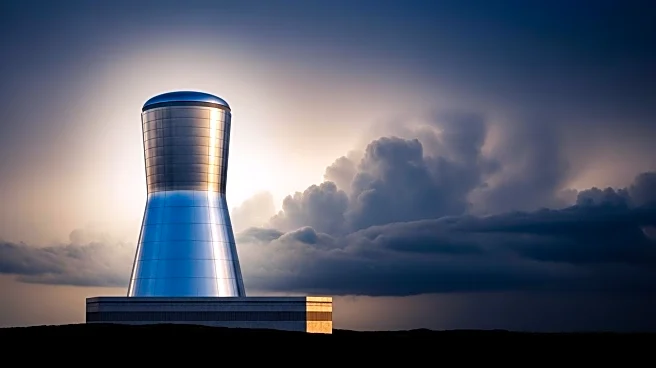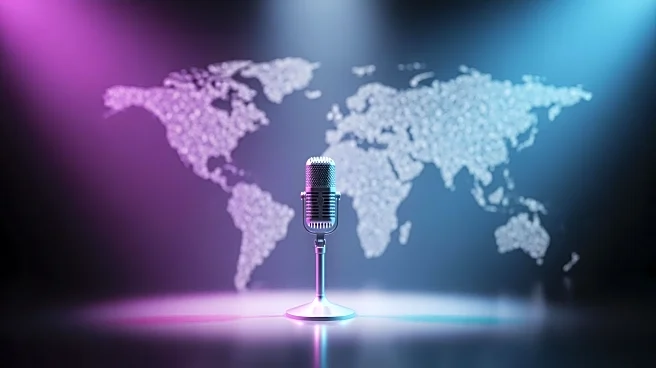What's Happening?
South Korea has disclosed that North Korea is operating four uranium enrichment facilities, indicating an expansion of its nuclear capabilities. This revelation adds to existing assessments that North Korea has multiple covert atomic plants, including the well-known site near Pyongyang. The South Korean Unification Minister, Chung Dong-young, highlighted the urgency of halting North Korea's nuclear program, noting that uranium enrichment centrifuges at these facilities are operational daily. The North's leader, Kim Jong Un, has emphasized the rapid expansion of the country's nuclear arsenal, refusing to use these weapons as a negotiating point with the U.S. President Trump. The South Korean ministry clarified that the assessment of North Korea's possession of 2,000 kilograms of highly enriched uranium was based on civilian expert analysis. This amount suggests a significant increase in North Korea's stockpile of nuclear material, which could potentially be used to manufacture numerous nuclear devices.
Why It's Important?
The expansion of North Korea's uranium enrichment facilities poses a significant threat to regional and global security. The increase in nuclear material stockpiles could lead to the production of more nuclear weapons, heightening tensions with neighboring countries and the international community. This development complicates diplomatic efforts aimed at denuclearization, as North Korea's growing arsenal may provide it with greater leverage in negotiations. The stalled diplomacy since 2019, following unsuccessful summits between Kim Jong Un and President Trump, underscores the challenges in reaching a comprehensive agreement. The potential for North Korea to seek sanctions relief and improved ties with the U.S. in exchange for partial denuclearization remains a critical issue for policymakers.
What's Next?
The international community, particularly the U.S. and South Korea, may need to reassess their strategies in dealing with North Korea's nuclear ambitions. Diplomatic efforts could focus on restarting talks with North Korea, possibly involving new incentives or frameworks to address the nuclear issue. The U.S. may consider adjusting its preconditions for negotiations, as Kim Jong Un has expressed a willingness to engage if demands for complete denuclearization are dropped. Monitoring and verification of North Korea's nuclear activities will be crucial in any future agreements, requiring cooperation from international bodies and neighboring countries.
Beyond the Headlines
The expansion of North Korea's nuclear capabilities raises ethical and legal questions regarding nuclear proliferation and the responsibilities of nuclear-armed states. The clandestine nature of uranium enrichment facilities poses challenges for international monitoring and compliance with non-proliferation treaties. The situation also highlights the broader geopolitical dynamics in the region, with potential shifts in alliances and power balances as countries respond to North Korea's actions. Long-term implications may include increased military spending and strategic adjustments by affected nations.









